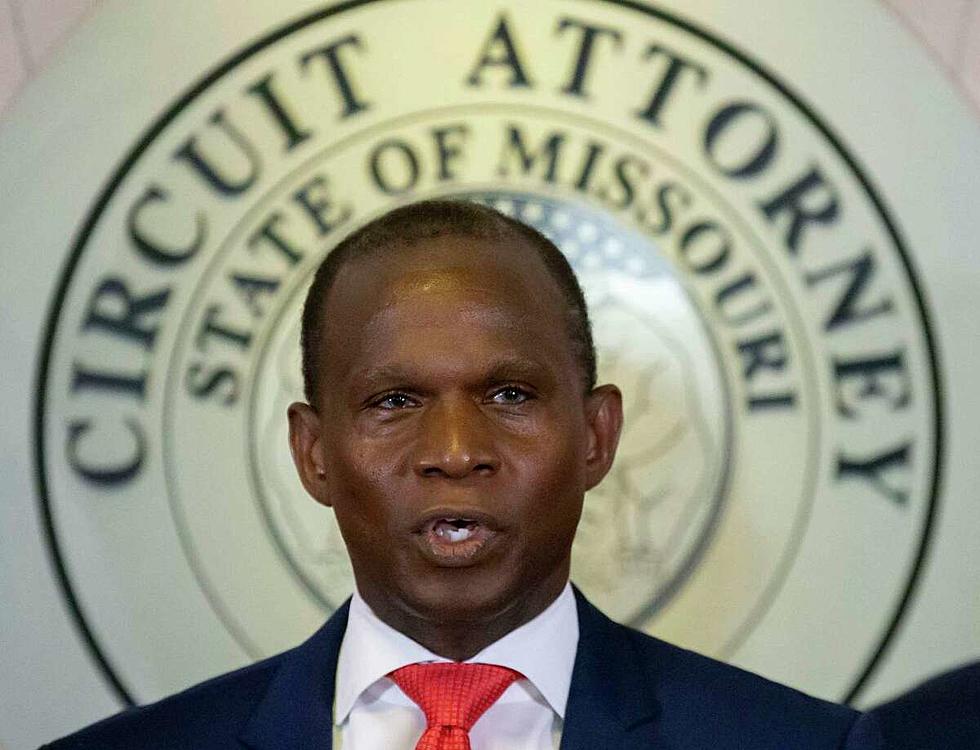
Republican Jay Ashcroft Enters Race For Missouri Governor
Missouri’s top election official Jay Ashcroft on Thursday announced he is running for governor as a Republican.
The secretary of state is campaigning to replace GOP Gov. Mike Parson, who is prohibited by term limits from running again in 2024. He faces a primary election that will include Republican Lt. Gov. Mike Kehoe, who announced plans to run for the state's top executive office in 2021.
Ashcroft said Missouri Republicans have not done enough despite controlling both the governor’s office and both the Missouri House and Senate.
“Red states like Florida, Texas, Tennessee, even Indiana and Arkansas, have become examples of conservative leadership while Missouri Republicans, who control every statewide office and have supermajorities in both chambers of the legislature, have failed to deliver,” Ashcroft said in a statement. “I’m running to change that.”
Democratic Senate Minority Leader John Rizzo on Thursday told reporters that he agrees Missouri Republicans have failed to deliver on issues including health care and crime, “but they are leading the charge in tinfoil hats.”
Ashcroft’s candidacy has been widely anticipated. A political action committee supporting him has already raised $1.3 million, and Ashcroft said he has raised about $700,000.
He enters the race with considerable name recognition after serving as secretary of state since 2017, and the Ashcroft family is a political legacy in Missouri. Ashcroft's father, John Ashcroft, served as Missouri governor, a U.S. senator and U.S. attorney general under former President George W. Bush.
House Democratic Minority Leader Crystal Quade in a statement Thursday said Ashcroft “feels holding office is his birthright based on his father’s accomplishments instead of a sacred duty to serve the citizens of Missouri.”
“Missourians deserve a governor who is dedicated to them, not an extremist who thinks he’s entitled to the People’s Mansion because of his last name,” she said.
Quade has said she is considering running for governor as a Democrat but has not yet taken any formal steps to do so.
Other potential candidates include Republican state Sen. Bill Eigel, who in January opened what is called an exploratory committee that will allow him to begin fundraising before he officially announces.
As secretary of state, Ashcroft last month withdrew Missouri from a bipartisan, multistate effort aimed at ensuring the accuracy of voter rolls that has found itself in the crosshairs of conspiracy theories fueled by Donald Trump’s false claims about the 2020 presidential election.
The system to thwart voter fraud known as the Electronic Registration Information Center, or ERIC, has become a target of suspicion among some Republicans after a series of online posts early last year questioning its funding and purpose.
Ashcroft has said he decided to leave after concluding that changes he had been advocating for would not be made and that it was unlikely more states surrounding his would join the effort. Among the changes he sought was dropping a requirement for member states to send mailings to eligible but unregistered voters and removing what he described as partisan influences from the program.
Ashcroft also has long advocated for Missouri's recently enacted photo identification requirement for voters as a way to prevent voter fraud, although he has also maintained Missouri already had secure elections.
Other notable actions by Ashcroft during his time in state office include proposing a rule to require state-funded libraries to adopt policies on the age-appropriateness of literature, which is already common at both school and public libraries in the state. Libraries that violate the rules would risk losing state funding, which is doled out by the Secretary of State’s Office through the state librarian.
The proposal is what is known as an administrative rule, which would have the same effect as a law if enacted.
Ashcroft's office came under fire from abortion supporters when a coalition in 2019 tried to put a law banning abortions at or after eight weeks of pregnancy to a public vote. They alleged Ashcroft dragged his feet, leaving them with two weeks to gather the roughly 100,000 voter signatures needed to delay the law.
The Missouri Supreme Court ultimately ruled that state laws on referenda unconstitutionally limit citizens' right to challenge state laws.
More From AM 1050 KSIS









